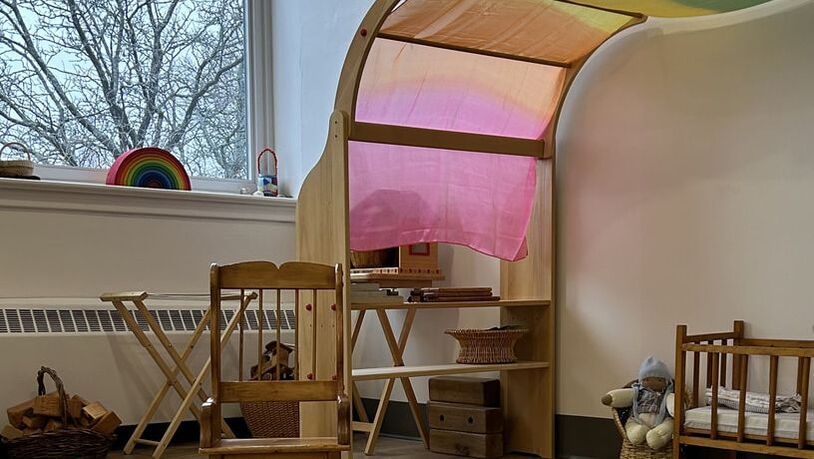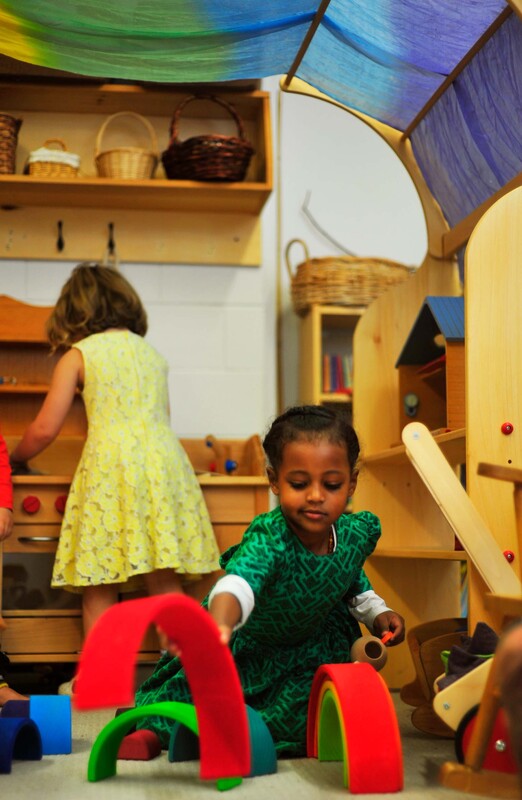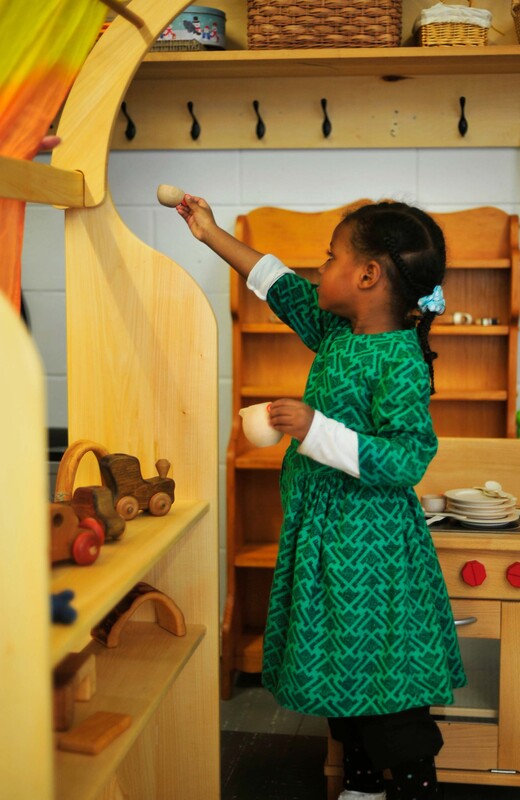Parent and Child at Polaris
Spring 2024
Thur. Apr. 4 to Jun. 13 and/or Fri. Apr. 5 to Jun 14
Registration Open (limited spaces available).
The ordinary arts we practice every day at home are of more importance to the soul than their simplicity might suggest.
~ Thomas Moore
|
Come and join like-minded families in a calm, joyful and supportive environment of play and learning.
The educational aspect for adults will touch on parenting subjects like child development, discipline, festivals, observation and imaginative play. We will also engage in simple hand work projects. The class will be set within a social environment of seasonal songs, stories, simple festivals and a shared snack. This morning class is for parents/caregivers and children, newborn to 4 years of age, pregnant moms and dads. 09:15 am Drop-in, play, discussion on parenting subject, handwork 10:15 am Clean-up 10:25 am Circle or story 10:35 am Snack 11:00 am Goodbye song TWO Spring Sessions:
Location: Polaris School and Centre, 1805 de Gaspe Ave. second floor. Cost: Fall Sessions: $330 for all 11 classes. Limited Spaces Available. For more information contact us at [email protected] Claire Mattar has been in the field of education for over 40 years. In 2007 she completed a Teacher Training Program with Institut Pegase. This Education is not only for her a pedagogy, but also a way of living in her everyday life. She is looking forward to sharing with parents and supporting them in there need to find balance with family routine, in beauty and in simplicity. Marc Delannoy completed his Waldorf Teacher Training in Toronto and has taught at various Waldorf schools in the Ottawa area including École Parsifal School and Ottawa Waldorf School. A lover of folk song and poetry, Marc has enjoyed singing and composing over the years. He continues to be inspired by Waldorf’s unique approach to education and its use of art in all its guises as a therapeutic tool. He looks forward to sharing ideas and providing families with support through this unique approach. |
|
Two “magic” words indicate how children enter into relationship with their environment. These words are imitation and example. The Greek philosopher Aristotle called human beings the most imitative of creatures. For no age in life is this truer than for the first age of childhood, before the change of teeth. Children imitate what happens in their physical environment. […] “Physical environment” must, however be understood in the widest sense imaginable. It includes not just what happens around children in the material sense, but everything that occurs in their environment – everything that can be perceived by their senses, that can work on the inner forces of children from the surrounding physical space. This includes all moral or immoral actions, all wise or foolish actions that children see. - Rudolf Steiner in The Education of the Child |
|
|
|
© COPYRIGHT 2024. ALL RIGHTS RESERVED.
|





